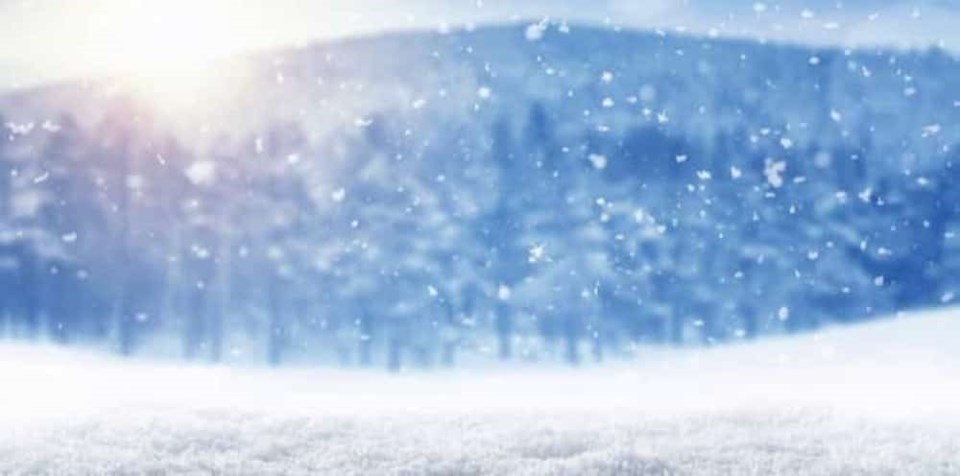Environment Canada has announced that the parts of Metro Â鶹´«Ã½Ó³»could see up to a whopping 25 cm of snowfall at higher elevations by Friday morning.
The department tweeted about its latest prediction, noting that precipitation will begin late Thursday evening over Metro Vancouver. While it could start as rainfall, the forecast notes that it will change to snow later on. Inland areas (more than five to 10 km from the ocean) could see snowfall accumulations of up to five cm by 6 a.m. on Friday. In comparison, seaside locations will only see trace amounts of snowfall.
The forecast predicts that the snow will be wet, which means that there will be no blowing snow. However, meteorologists aren't sure when the rainfall will begin tommorrow. As such, they can't predict exactly how much snowfall will accumulate, since the amount depends on how early the rain begins.
As a best case senario, Environment Canada calls for three to five cm of snowfall followed by 20 to 30 mm of rainfall. In a worst case senario, ten to 25 cm of snowfall could be followed by five to 10 mm or no rain.
There is also a potential for power outages and tree damage.
"1/2 There's been a lot of talk about SNOW for the South Coast & Metro #Vancouver," reads a tweet from the After pouring over all the details from various models and comparing with historical events, here is the latest forecast. Trace to 25cm?? Yup! See Tweet#2 below for more details.
1/2 There's been a lot of talk about SNOW for the South Coast & Metro . After pouring over all the details from various models and comparing with historical events, here is the latest forecast.
— ECCC Weather British Columbia (@ECCCWeatherBC)
Trace to 25cm?? Yup!
See Tweet#2 below for more details.
2/2 And here are some SNOW forecast details, laying out what we are confident and less confident about.
— ECCC Weather British Columbia (@ECCCWeatherBC)
Stay tuned for snowfall warnings.
Environment Canada is also calling for the chance of snowfall every day over the next seven days.
More snow is possible this weekend as a series of weather systems embedded in a cool northwest flow from the Gulf of Alaska moves ashore. What's more, early next week, very cold arctic air from the B.C. Interior will arrive on the South Coast.



